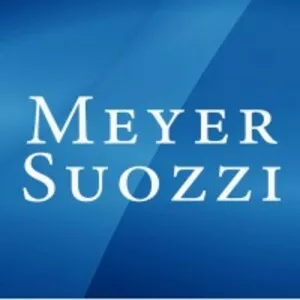In the recent decision in Republic of Kazakhstan v Chapman, 2023 NY Slip Op 03211 (1st Dep't Decided June 13, 2023), the First Department affirmed the dismissal of claims seeking to vacate an arbitration award based upon allegations of fraud. The decision is a good source of accepted principles, including relating to claims of aiding and abetting fraud, conspiracy to commit fraud and the element of reasonable reliance.
Arbitration Awards
As often recognized, is it extremely difficult to vacate an arbitration award. The grounds are quite limited. One accepted ground, embodied in the Federal Arbitration Act (FAA), is where the award was "procured by fraud." A party seeking to challenge an arbitration award based upon evidence of fraud submitted to the arbitrator(s) must prove a number of elements.
Specifically, the FAA provides that an arbitration award may be vacated "where the award was procured by corruption, fraud, or undue means." 9 USC § 10(a)(1). A petitioner seeking to vacate an arbitration award on the basis that it was procured by fraud must plead that "(1) respondent engaged in fraudulent activity; (2) even with the exercise of due diligence, petitioner could not have discovered the fraud prior to the award issuing; and (3) the fraud materially related to an issue in the arbitration." Odeon Capital Group LLC v. Ackerman, 864 F 3d 191, 196 (2d Cir 2017). In the context of a request to vacate an arbitration award, a petitioner need not demonstrate that, but for the alleged fraud, the arbitrators would have reached a different result (id.). Rather, the petitioner must demonstrate that there is a nexus between the alleged fraud and the decision of the arbitrator (id.).
In Chapman, the First Department did not have to address the issues under the FAA because it found that plaintiff had already litigated those issues both in the arbitration and in a separate federal court action and lost. Thus, the First Department ruled that collateral estoppel barred the claims there. The First Department also rejected the plaintiffs' claim based upon what it argued was newly-discovered evidence of the alleged fraud:
These allegations cannot undermine the preclusive effect of the earlier decisions. "There is a well-settled rule prohibiting challenges to arbitral awards on the basis of newly discovered evidence . . . Without such a rule, the arbitration award would be the beginning rather than the end of the controversy and the protracted litigation which arbitration is meant to avoid would be invited" (Matter of Hirsch Constr. Corp. [Cooper], 181 AD2d 52, 55 [1st Dept 1992][internal quotation marks and citation omitted], lv denied 81 NY2d 701 [1992] [rejecting challenge to arbitration award on the basis of "newly discovered evidence which was not before the arbitrators"]; Matter of DiNapoli v Peak Automotive, Inc., 34 AD3d 674, 675 [2d Dept 2006], citing Matter of Hirsch; see also Restatement [Second] of Judgments, § 27, comment c [1982] ["(I)f the party against whom preclusion is sought did in fact litigate an issue of ultimate fact (i.e., an issue requiring application of law to fact) and suffered an adverse determination, new evidentiary facts may not be brought forward to obtain a different determination of that . . . (issue)"]; Karaha Bodas Co., L.L.C. v Perusahaan Pertambangan Minyak Da Gas Bumi Negara, 500 F3d 111, 122 [2d Cir 2007]).
No Underlying Fraud
The First Department also ruled that plaintiff had failed to allege viable claims of fraud in any event.
The Court first rejected the claims of "aiding and abetting" fraud because plaintiff had not properly alleged an underlying fraud claim. Specifically, the Court ruled plaintiff could not have justifiably relied on alleged misrepresentations made by an adversary in the course of litigation:
Even if collateral estoppel did not apply to all of plaintiff's claims, those claims would still warrant dismissal for failure to state a cause of action (CPLR 3211 [a] [7]). The aiding and abetting fraud and conspiracy to commit fraud claims fail, since the complaint does not include detailed allegations of an underlying fraud (see CPLR 3016 [b]; Habberstad v Revere Sec. LLC, 183 AD3d 532, 533 [1st Dept 2020]; Kovkov v Law Firm of Dayrel Sewell, PLLC, 182 AD3d 418, 419 [1st Dept 2020]). Specifically, the allegations do not support justifiable reliance on the Statis' misrepresentations of fact or omissions (see Rapaport v Strategic Fin. Solutions, LLC, 190 AD3d 657, 657-658 [1st Dept 2021]), as they "were undertaken in the course of adversarial proceedings and were fully controverted" by plaintiff's own proffered evidence (Sammy v Haupel, 170 AD3d 1224, 1226-1227 [2d Dept 2019]; see also Shaffer v Gilberg, 125 AD3d 632, 635 [2d Dept 2015] [the plaintiff "always maintained that he knew" promissory notes were fake]; Zappin v Comfort, 2022 WL 6241248, at *15 [SD NY 2022] ["In the context of an adversarial proceeding, Plaintiff is hard-pressed to assert reliance on claims that he constantly disputed"]). Plaintiff's allegations of misrepresentations to parties other than arbitrator tribunals or courts additionally fail for lack of damages.
I have commented upon these principles often and specifically the Sammy case cited above. See Fraud Claims Fail Because Plaintiff Could Not Have Believed the Alleged Misrepresentation was False and Thus No Reasonable Reliance.
The First Department also rejected the "conspiracy" and aiding and abetting claims because they were insufficiently conclusory:
The claim for conspiracy to commit fraud also fails because the allegations of an "agreement among the conspirators" are "conclusory" (Kovkov, 182 AD3d at 419), while the aiding and abetting claim fails because the complaint includes only "'allegations which would be sufficient to state a claim against the principal participants in the fraud' combined with conclusory [*3]allegations that the aider and abettor had actual knowledge of such fraud" (Goel v Ramachandran, 111 AD3d 783, 792 [2d Dept 2013], quoting National Westminster Bank v Weksel, 124 AD2d 144, 149 [1st Dept 1987], lv denied 70 NY2d 604 [1987]).
Commentary
The First Department decision in Chapman is a good summary of the law relating to vacating arbitration awards based upon alleged newly-discovered evidence of claimed fraud, as well as principles governing claims of aiding and abetting fraud, conspiracy to commit fraud and the element of justifiable reliance.
Originally published 20 June 2023
The content of this article is intended to provide a general guide to the subject matter. Specialist advice should be sought about your specific circumstances.

